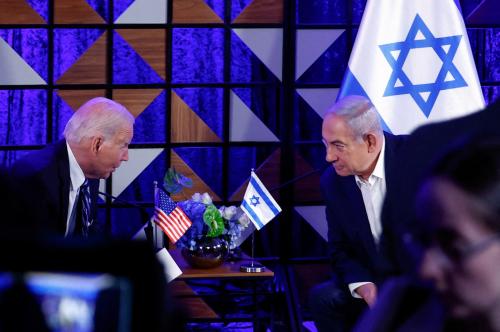Last Thursday, the USA Today reported that three U.S. telecommunications companies have been voluntarily providing anonymized domestic telephone records to the National Security Agency. If true, the architect of this program deserves our thanks and probably a medal. That architect was presumably General Michael Hayden, the former Director of the NSA and now the President’s nominee to become Director of the Central Intelligence Agency.
The potential value of such anonymized domestic telephone records is best understood through a hypothetical example. Suppose a telephone associated with Mohammed Atta had called a domestic telephone number A. And then suppose that A had called domestic telephone number B. And then suppose that B had called C. And then supposed that domestic telephone number C had called a telephone number associated with Khalid Sheik Mohammed, the Pakistan-based architect of the 9/11 attacks. The most effective way to recognize such patterns is the computerized analysis of billions of phone records. The large-scale analysis of anonymized data can pinpoint individuals – at home or abroad – who warrant more intrusive investigative or intelligence techniques, subject of course to all safeguards normally associated with those techniques.
Clearly, there is a compelling national interest in understanding and penetrating such terrorist networks. If the individuals associated with domestic telephone numbers A, B. and C are inside the United States and had facilitated the 9/11 attacks, perhaps they are facilitating a current terrorist plot. The American people rightly expect their government to detect and prevent such terrorist plots against the homeland.
Very few career government officials possess the expertise, initiative, and creativity needed to devise a system to penetrate such networks using only existing statutory and Presidential authorities, employing only existing technical and personnel resources, and violating the privacy of no American. Yet, if the USA Today story is correct, this appears to be exactly what Mike Hayden did.
Some legislators and observers have questioned the legality of the alleged NSA domestic telephone records collection program. If the facts of the program are as reported in USA Today, then there every reason to believe that the program is perfectly legal.
There are of course strict legal limits on the ability of federal agencies like the NSA to compel the provision of domestic information or collect it secretly. The USA Today story, however, alleges that three telecommunications companies (AT& T, Verizon, and BellSouth) provided the information in question voluntarily. How else could one company (Qwest) decline to provide the information? Since there is no prohibition against federal agencies receiving voluntarily provided business records relating to their responsibilities, it appears that the NSA’s alleged receipt and retention of such information is perfectly legal.
The three companies that allegedly supplied anonymized domestic telephone records to the NSA also appear to be acting lawfully. The Telecommunications Act of 1934, as amended, generally prohibits the release of “individually indentifiable customer proprietary network information” except under force of law or with the approval of the customer. But, according to the USA Today, the telephone records voluntarily provided to the NSA had been anonymized – that is, stripped of individually indentifiable data, such as names and place of residence. In addition, the Electronic Communications Privacy Act of 1986 explicitly permits telecommunications companies to provide customer records to the government if the government asks for them. It would appear, therefore, that the companies have been acting not just in the public interest, but also within the law and without encroaching on the privacy of any of their customers.
Bureaucrats excel at finding reasons not to do something. They are most often guilty of sins of omission, not commission. A timid, ordinary executive might have concluded that it was too risky to ask U.S. telecommunications companies to provide anonymized call records voluntarily to a foreign intelligence agency such as the NSA. If the USA Today story is correct, it appears that Mike Hayden is no timid, ordinary executive. Indeed, it appears that he is exactly the sort of man that we should have at the helm of the Central Intelligence Agency while we are at war.
Richard A. Falkenrath is the Stephen and Barbara Friedman Fellow at the Brookings Institution. He was Deputy Homeland Security Advisor and Deputy Assistant to the President until May 2004. He has no official knowledge of the program in question.



Commentary
Op-edThe Right Call on Phone Records
May 13, 2006